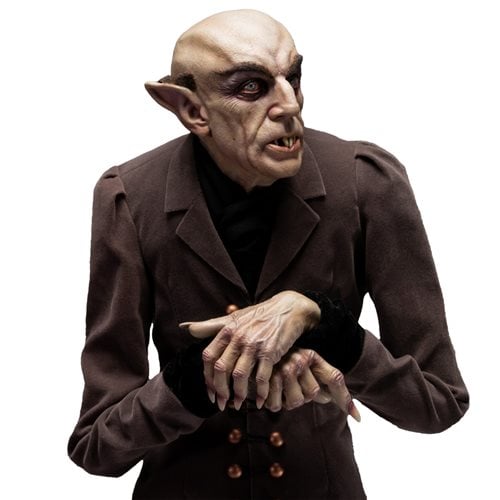Director Francis Ford Coppola, recently wrapped shooting his newest film "Youth Without Youth".
From the movie's official website at youthwithoutyouth.com
Coppola blogs in a 'diary' about artistic genius and the aging process:
I've been thinking about what seems to be a repeating pattern: artists who distinguish themselves when they are young, and then never can quite reach those levels again. There are many examples, especially in literature, the theater, and of course in film.
I think of some of the greats I've admired in my own life: Tennessee Williams, who wrote THE GLASS MENAGERIE and A STREETCAR NAMED DESIRE when he was in his thirties and then was tormented by critics as well as himself for failing to match those achievements later in life; Norman Mailer, who was twenty-five when he wrote THE NAKED AND THE DEAD, and kept working, reaching ever upward and not quite making it; Joseph Heller, who wrote CATCH-22 in 1961 and never topped it; J. D. Salinger, who wrote his two great books and stories early on and then nothing; and many others, including poets and playwrights who took their own lives rather than face the fact that their creative summits seemed to have passed...
Why is this? What are the reasons? Is it only that genius at the level of Shakespeare, Verdi, Kurosawa and Picasso is as rare and precious as it would seem, or are there other factors as well? More on this subject will come....
***
Youth Wihout Youth...Without what? What is missing? What could be the reason that the same person, later in life, is unable to compete with himself as a younger artist? Is anything missing at all, or is the answer simpler — that each person is given only one or two truly worthy ideas, like a couple of arrows in a quiver...
Originally, I didn't intend to make more than one Godfather film; yet economic forces at the studio were insistent: "Francis, you have the formula for Coca-Cola; are you not going to make more?" But the first film expended most of the arrows in my quiver or, more aptly, the slugs in my revolver. So, the second film had to stretch into new and more ambitious territory to show a few more; otherwise, it would have been weaker than the first. By the time the third arrived, the basic ideas that made the first fresh and excited were all but used up...
***
I've begun to think that the only sensible way to deal with this dilemma is to become young again, to forget everything I know and try to have the mind of a student. To re-invent myself by forgetting I ever had any film career at all, and instead to dream about having one.
Certainly one advantage of 'youth' in the arts is ignorance, to know so little as to be fearless. To not grasp that certain things one may dream up are actually impossible to do. When I finished Apocalypse Now I of course thought 'If I knew then what I know now, I wouldn't have even tried..." Certainly old age brings 'experience' and that is not to be discounted, but in the arts, fearlessness is a more desirable genie than experience. Fearlessness is cousin to innovation, whereas experience can be the parent of fear. Once you've fallen out of the tree a few times; felt the pain of those bruised knees and suffered the embarrassment of the inevitable ridicule —it's much more difficult to be as daring in what you do, or even what you attempt to do.
So, for myself at any rate, I've decided the best course is to become an amateur and accept that I know next to nothing and love almost everything...
skip to main |
skip to sidebar



BREAKING MOVIE/TV NEWS
TOP STORY
“Buffalo Kids” in 2026
“Buffalo Kids”, the 2024 Spanish animated adventure comedy feature, durected by Pedro Solís and Juan Galocha, starring voice cast Alisha Wei...

SNEAK PEEK INTERNATIONAL.COM translate
SNEAKPEEK.CA SEARCH
BREAKING
TRENDING
TOP 10 COMIC BOOK SALES 2020 - 2025
- NOVEMBER 2025
- OCTOBER 2025
- SEPTEMBER 2025
- AUGUST 2025
- JULY 2025
- JUNE 2025
- MAY 2025
- APRIL 2025
- JANUARY 2025
- MARCH 2025
- FEBRUARY 2025
- DECEMBER 2024
- NOVEMBER 2024
- OCTOBER 2024
- SEPTEMBER 2024
- JULY 2024
- AUGUST 2024
- JUNE 2024
- MAY 2024
- APRIL 2024
- MARCH 2024
- FEBRUARY 2024
- JANUARY 2024
- DECEMBER 2023
- NOVEMBER 2023
- OCTOBER 2023
- SEPTEMBER 2023
- JULY 2023
- JUNE 2023
- APRIL 2023
- MARCH 2023
- JANUARY 2023
- DECEMBER 2022
- OCTOBER 2022
- SEPTEMBER 2022
- AUGUST 2022
- JULY 2022
- JUNE 2022
- MAY 2022
- APRIL 2022
- MARCH 2022
- FEBRUARY 2022
- JANUARY 2022
- DECEMBER 2021
- NOVEMBER 2021
- OCTOBER 2021
- SEPTEMBER 2021
- AUGUST 2021
- JULY 2021
- JUNE 2021
- MAY 2021
- APRIL 2021
- MARCH 2021
- FEBRUARY 2021
- JANUARY 2021
- DECEMBER 2020
- NOVEMBER 2020
- OCTOBER 2020


SneakPeek.Ca © MMII-MMXXV- Contents Copyright Their Respective Owners - ADVERTISING: COMMANDENTERTAINMENT@USA.COM
































































